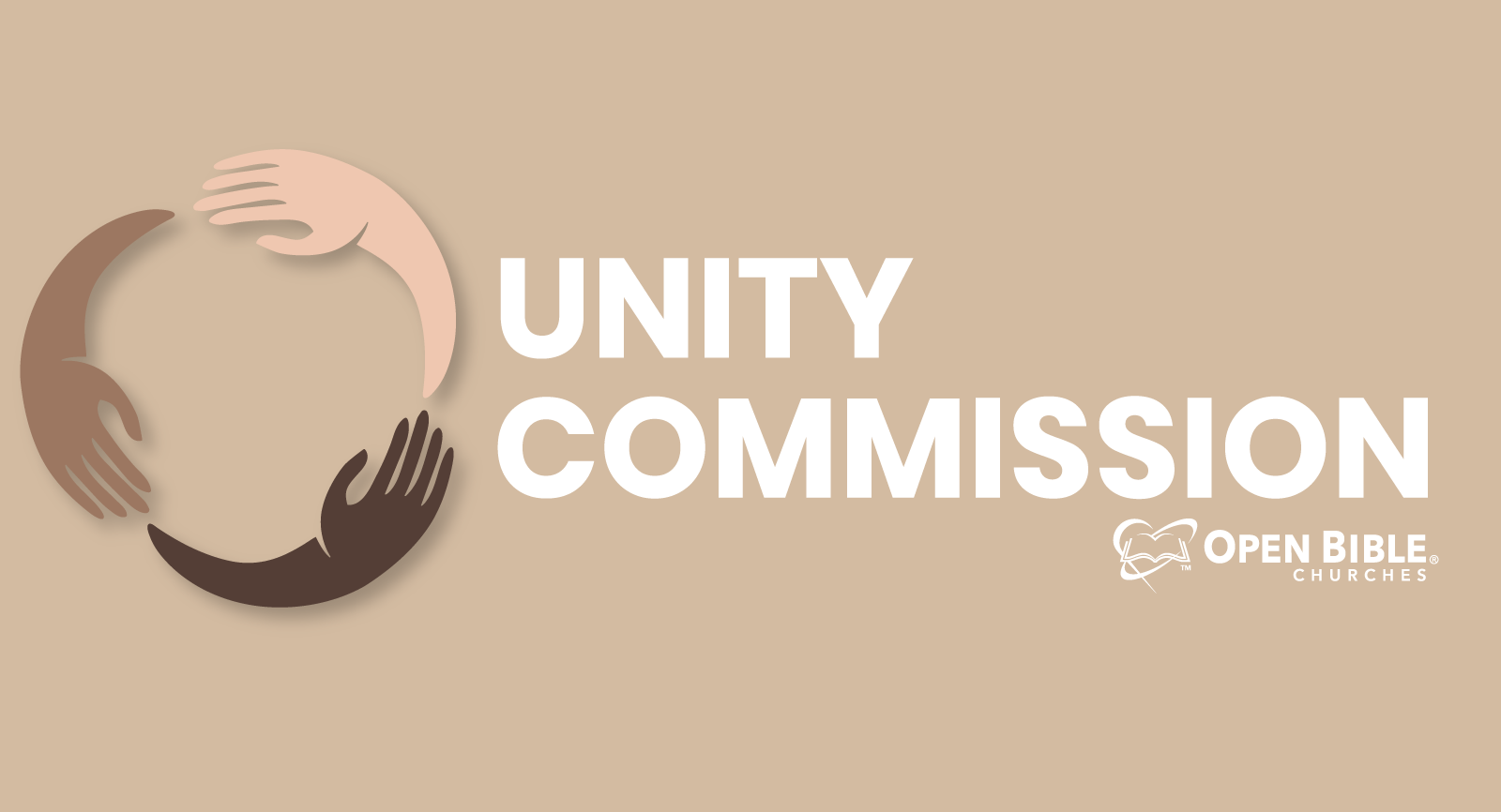Archive
From a Godly Mother’s Heart
Published
4 years agoon

When it comes to conversations on race, our level of offendability often reveals the level of our maturity. If we can’t overcome offense in the moment, we are not going to get very far. Reconciliation requires us to listen deeply to one another.”
— Pastor Rich Villodas
As part of its support for Open Bible Churches’ Unity Commission’s passion for Open Bible people to be bridge builders between races, which must begin with a sincere commitment to listen to and understand each other, the Message requested a godly Black mother to let us see through the eyes of her experience and to share with us about what is known as the “Black Family Talk.” The request for this article extends back months, long before the George Floyd trial and subsequent debate about shootings of Black people by law enforcement. Dyrie Francis is a credentialed Open Bible minister. She and her husband, Karl, pastor one of Open Bible’s largest and most vibrant churches in the USA. A registered nurse who holds master’s degrees in nursing and Christian leadership and is pursuing a PhD in Biblical Studies, Dyrie is not given to emotional hyperbole. She carefully and skillfully crafts what she wants to say with loving respect and sensitivity toward the reader. She believes in the importance of law enforcement. She does not seek to offend; however, she is a truth teller. She vulnerably and passionately responded to our request rather than demanding that her voice be heard. Elements of the “Black Family Talk” obviously transcend race; counsel regarding how to respect and respond to law enforcement is sound instruction for all youth. However, please listen deeply as you read Dyrie’s account. Listen to the heart of a mother of young Black men. If you are not a person of color, then seek to learn about and feel what Dyrie shares. Please note Dyrie’s Steps to Racial Reconciliation. There is an ongoing divide between Black and White in America. As Christ’s followers, we must lead the way in reaching beyond racial walls to pursue reconciliation.
Thank you, Dyrie, for trusting our readers to listen to your heart.
— President Randall A. Bach
The Black Family Talk
By Dyrie Francis
I write because my heart is bleeding. It seems the seeping of blood and pain is unceasing. Every unwarranted act of violence or aggression against an African American opens the wound of racial discrimination and injustice perpetuated for centuries. The bleeding intensifies with each new report. I cannot be indifferent. I am black and have felt the pain of the families I serve and others far removed.
I have two sons, and as early as when they were two years old it was necessary to speak to them in a manner I never dreamed would be necessary in contemporary society. We live on an oversized corner lot with no fences between our lateral neighbors. The neighbors’ children and dogs race across my yard without permission, and it is ok by me because I want to be neighborly. But the reverse is not true with my children. I always instructed my young children never to cross the boundary line to my neighbor’s property. They should play only in their own yard. The reason I cautioned them this way was my fear that someone would harm them or that false accusations of misconduct would be made against them. As they grew older and could be left home alone while I did errands, I firmly instructed them never to go outside to play in our absence. They are two of perhaps five African American children in the neighborhood. I am more than aware of police harassment of one Black child on my street and my goal is to shield my children from such negative experiences.
My husband and I instructed our sons to respect authority and especially law enforcement officers who already demonstrated bias towards people of color. As my sons grew older, the conversation became increasingly more challenging. My children are schooled in the Scriptures and are also honor roll students. They would refer to their teachings in civics classes and what they learned of God’s justice. For them, it was unimaginable that a good and loving God would tolerate the level of abuse and injustice apparent in our society. They would share their understanding of “liberty and justice for all.” I would insist that their job was to do the right thing, go the extra mile, always address police officers as “sir” or “ma’am,” never argue their point even though they may be right – all in order to reduce any risk of violence against them. It was necessary to emphasize that all we can do with a dead child is to bury him! It was heart-rending to have these kinds of conversations in a country professing the rights of all people!
Most of all, I pray the day will dawn when the heart of God’s people, His church, will cease their silence and their heart will break over what breaks His heart.“
A new level of anxiety arose after our sons received their driver’s licenses. Both are over six feet in height and built well. I feared some officer may be intimidated by their size and see them as a threat requiring “force.” We advised them to keep their focus when being followed and not be intimidated, to follow the road signs and speed limit, to count to eight or even ten before making a turn at a stop sign (to prove they really stopped), always wear their seat belt, and keep their music at a low volume so as to not attract the attention of the police.
Yet one afternoon my son came home very distraught. He was ten minutes away from home when two police officers started to follow him. They pulled him over and began their “taunting,” positioning themselves one on either side of his car. He received three citations (along with a fine of $392) from the smirking officers who told him, “You shifted lanes without indication, you failed to stop at a red light, and you have a tint on your car.” My son had been returning home from college in the middle of the afternoon. He knew he was being followed. No one in their right mind would run a red light with a police car behind them! The tint on his car met the legal standard (we had made sure of that). The only possible infraction could have been changing lanes without indication in his effort to get out of the way of the “trailing” police. I was very thankful he held his tongue or God knows what kind of news my family might have received about my son.
It is no secret that violence against African Americans leading to death has proliferated without much recourse or punishment for the perpetrators. The reality that one or both of my sons could become victims for even a minor traffic violation is unnerving and a daily source of stress. I am a prayer warrior and I believe God will take care of them, but the recurrent pictures of harm and unwarranted death for petty crimes or misdemeanors remains a painful reminder to a mother’s heart.
Although my sons are now adults, I still make frequent calls and always include the reminders of earlier instructions to ensure their personal safety. I pray the day will come when all people are treated equally regardless of skin color and people will grasp that we are part of the community of humanity. Most of all, I pray the day will dawn when the heart of God’s people, His church, will cease their silence and their heart will break over what breaks His heart. The Scriptures are replete with God’s condemnation of any form of injustice and oppression of others. I believe His heart is bleeding heavily over racial injustice, violence, and oppression against black people.
Root of Injustice
I am not naive about the nature of evil in the world which began with the disobedience of the first couple in the Garden of Eden (Genesis 3:3), who later parented all nations on earth. I am aware of the strife of nations, racial disharmony, and the challenges that are associated with the joys of raising children. I write from a mother’s heart. All mothers’ hearts thump with similar rhythm – joy and pain, fears and pride, hope and disappointment as they journey with their children from birth to adulthood. These emotions are color blind. As a hen protects her chickens, mothers (parents) universally seek the well-being of their children. They desire to protect, to nurture, to educate and lead to maturity children that are Christ lovers and productive members of society.
An amazing piece of information that emerged from the interviews was the level of compassion these families expressed for the fearful situations that many law
enforcement personnel encounter.”
Permit me to pause and ask the question, how in the name of God did some children gain a greater right to healthy existence while others daily wrestle with the fear of harm? I have searched the Scriptures for clues that clarify or cancel a belief system that is ill-founded, at times legally supported but morally out of alignment with Scriptures. The word of God declares, “Children are a gift from the Lord; they are a reward from him. Children born to a young man are like arrows in a warrior’s hands. How joyful is the man whose quiver is full of them” (Psalm 127:3-5).
The culture of our nation casts a dark shadow over the course of the Black family and impairs the joy that God declared would be a part of the journey of parenting. I recognize the vast gulf between the experiences of the majority culture in raising their children and that of the Black family. My hope is for the majority culture to understand that that gulf does exist. The fact is that racism and racial profiling look at one factor – the color of a person’s skin. There is no regard for character, education, religion, or family structure. In fact, racism even persecutes the minority family for living in a “decent” neighborhood. Case in point: another family from our church lives on the same side of the street as I do. We joke that we are the Christian flag poles since we are at both ends of the street. One day when their 12-year-old son was playing at our house after school, I invited him to join us for a spaghetti dinner. He went home to ask permission from his parents, but when he returned about an hour later, he was very upset. I questioned his delay and why he was so upset. He related that while walking to my house, a police squad stopped him and questioned him about his presence in the neighborhood. They informed him that a neighbor called the police because she saw a “Black boy on the street.”
A Parent’s Fear
In preparation for writing this article, I interviewed a number of Black parents from a variety of backgrounds – two-parent families, single-parent families, a bi-racial family, families of professional and trade occupations. All these families are Christ followers. Their “Black family talks” have a common thread – acute fear of harm to their children from law enforcement and through education and employment systems. By far, the greatest concern is from law enforcement due to racial profiling. All of these parents, regardless of education or occupation, placed emphasis on respect for authority, especially in any confrontation with law enforcement personnel. It is a daily reminder to address the law enforcement personnel appropriately, make eye contact, and use a calm voice. This is good counsel from parents for all children.
Do I consider all law enforcement guilty of such targeting? I cannot.“
However, imagine how hard it would be for an already anxious teen or young adult being pulled over for no obvious violation to stay calm and do all the “right” things when adults themselves are violating the very rights they are employed to enforce. Black parents constantly remind their children that officers may be tense about the situation and appear harsh. Still, they have a weapon that kills. Therefore, parents plead with their children to make every effort to de-escalate the tension by remaining still – not shifting, placing their hands visibly on the steering wheel, and being polite despite provocation. Although these instructions seem logical and basic, often they are not enough to protect them from taunts, insults, and questionable traffic tickets. Black children are schooled in the reality that failure to practice these simple but important behaviors may lead to personal harm, including death. A harsh reality for a young teen and a staggering daily source of anxiety for parents! But it is the reality of the experience of the Black family.
The mother of the bi-racial family I interviewed, a Caucasian, had an interesting addition to the “Black family talk.” She rejoiced that her son was “light-skinned enough to pass as a tanned surfer.” But she held him responsible to politely defend his Black friends in case of racial profiling from law enforcement. An amazing piece of information that emerged from the interviews was the level of compassion these families expressed for the fearful situations that many law enforcement personnel encounter. That’s why they emphasize in their Black family talk to remain calm and de-escalate tensions that may lead to harmful ends.
What Is the Church Doing?
There are young Blacks who are overwhelmed by the disparity and blatant injustice, and yes, some are guilty of crimes. Black families make it a practice to instruct their children on consequences that accompany poor choices and the negative impact on their future. On the other hand, it is no secret that the scales of justice are not balanced for the same crime for all races. I cannot be more emphatic here. A few years ago, a major local newspaper’s center pages were devoted to exposing the disparity in judgments and sentences served in the same court for similar crimes committed by Blacks and Whites. The statistics were alarming! This increases the pain of the Black family, and even more significant, it displeases God as well.
The Black family talks often become tense! How many times do you repeat the same line, “Life is not fair”? “Keep doing the right thing; others have suffered too. You will overcome.” Great words which challenge the nation’s pledge, “one nation under God with liberty and justice for all!” How long do parents have to pacify the anger over ill treatment and blatant discrimination and calm the fears of harm induced by the color of their children’s skin? The Black talk has left the threshold of family homes and entered the Church. I have worked with youth for many years and continue to mentor some. Repeatedly they ask, “What is the Church doing about racial injustice?” Every questionable death of a Black youth increases the anxiety level of both parents and children and the thought arises, “Could my child be next?”
Our problem is largely spiritual and not political.“
Further insult is added to the injury of injustice through racial profiling when people of the majority race assume that Black youth must have done wrong and deserve the poor treatment heaped on them. These majority people consider it incredulous that law enforcement would target a group because of the color of their skin. Do I consider all law enforcement guilty of such targeting? I cannot. However, the pervasiveness of such attitudes and conduct among law enforcement is a reality that Black families understand and experience. The fact is, people of all races commit crimes and should be judged with the same measure for the same crime. The Scriptures base judgment and assign punishment for offenses based on the gravity of the offense and not on a person’s skin color or status. In fact, the Bible calls out rulers and judges for ignoring or supporting injustice and oppression, for failure to relieve the oppressed, the widow, the orphan and the foreigner (Psalm 82:3; Isaiah 11:4; Jeremiah 21:12; and Zechariah 7:9-10). The apostle James makes the point that favoring one group of people and showing partiality is committing sin (James 2:8-10).
What then is the role of the Church, the people of God, regarding this bleeding wound in the Church and the nation’s body? How can our brothers and sisters smile indifferently when a part of Christ’s body is bleeding? How will Christ followers explain their silence, and for some, their practice of racism with subtle or blatant discrimination against a part of Christ’s body?
Steps to Racial Reconciliation
Here are some suggested first steps to understanding racial inequality and seeking a resolution:
- Be willing to acknowledge the problem exists. A most hurtful aspect of racial discrimination is denial of its existence or minimizing its effect on the Black family. Please permit the Holy Spirit to tenderize your heart about the reality of racial discrimination.
- Be a part of the solution. Encourage dialogue between the Black and majority culture. It is strongly believed that prejudice is learned. Learned behaviors can be unlearned where there is willingness to change. This responsibility is applicable to the Black family as well. Romans 12:1-2 (ESV) admonishes, I appeal to you therefore, brothers, by the mercies of God, to present your bodies as a living sacrifice, holy and acceptable to God, which is your spiritual worship. Do not be conformed to this world, but be transformed by the renewal of your mind, that by testing you may discern what is the will of God, what is good and acceptable and perfect.
- Persevere in spite of painful realities that will surface. Often good people avoid attempting to deal with the issue because it is messy and painful. In addition, the problem can seem to deteriorate rather than improve. As a result, some people of influence may be unwilling to initiate steps for reconciliation in their circle. Yet, Galatians 6:9 exhorts believers to persevere: And let us not grow weary of doing good, for in due season we will reap if we do not give up.
- Pray and seek God’s direction to be a bridge builder. This must be a God-directed action. Bridges are “stomped” on and may experience rejection, hurt, and brokenness initially. Remember Jesus’ words, Blessed are the peacemakers, for they shall be called sons of God. (Matthew 5:9).
- Help dispel the myths your circle may uphold. Truth in love should underline our conversation and interactions. Paul said it well in Ephesians 4:15: Rather, speaking the truth in love, we are to grow up in every way into him who is the head, into Christ.
- Get the facts before making broad judgments based on racial profiling. Things are not always the way they first appear. Often we blunder because the side that is first heard sounds firm and truthful. In fact, the writer of Proverbs warns, The one who states his case first seems right, until the other comes and examines him. (Proverbs 18:17). A wise practice is to get the whole story before casting judgment!
- Pray fervently for healing and progress in the path of unity. Talking is a great start but talking alone will not heal. Only God the Spirit can transform hearts that are willing and yielded to Him. Prayer combined with the word of God changes the spiritual atmosphere and allows the Spirit of God to speak His truth into our hearts and minds. A good practice is to include praying for God’s healing of the racial divide and for the unity of the nation. There is no group more equipped to tackle this giant than the Church, the body of Christ. For Jesus made it a point to pray for the unity of His church (John 17:20-21). By demonstrating unity and love, the world will know we are His followers (John 13:34-35).
I am grateful for the courageous leadership of Open Bible that will no longer sweep our pain under the rug but is willing to initiate conversation with the members of Christ’s Body of varying colors. Our problem is largely spiritual and not political. Search the Scripture, for in it lies the truth. Therefore, I invite Christ followers of all races and colors to unite in bringing glory to God by resolving to initiate steps to racial reconciliation. One tiny spark sets an entire forest ablaze. How much more with God’s help can His church accomplish in racial reconciliation?
Parts of what I have written may seem objectionable to some readers, and this is okay. The purpose of writing is to shed light from a mother’s hurting heart on what it is like on the other side of the wall in the Black family. I pray you will be open to what the Holy Spirit will impress on you. For most of us there is no bitterness, instead sadness, and greater still, hope because of Jesus Christ and His promises. We need your prayers as we are forced to continue the Black family talk daily. We need to know your care as we care for you of the majority culture. We are brothers and sisters through faith in the one Lord and Savior, Jesus Christ. For “There is neither Jew nor Greek, there is neither slave nor free, there is no male and female, for you are all one in one in Christ Jesus” (Galatians 3:28).
About the Author

Dyrie Francis serves as the associate pastor of Living Word Open Bible Church in Cooper City, Florida, and as Open Bible Southeast Region’s prayer coordinator. Dyrie and her husband, Karl, pioneered Living Word Open Bible Church, which is comprised of believers from 22 countries. The church celebrates unity in diversity and eagerly pursues the fulfillment of the Great Commission regardless of race or color. God and family are central to Dyrie’s life and ministry paradigm. Underlying her calling to service is a deep and inescapable awareness and sensitivity to God’s heart on justice and the plight of the oppressed. She serves as a bridge to many and will continue by the grace of God.
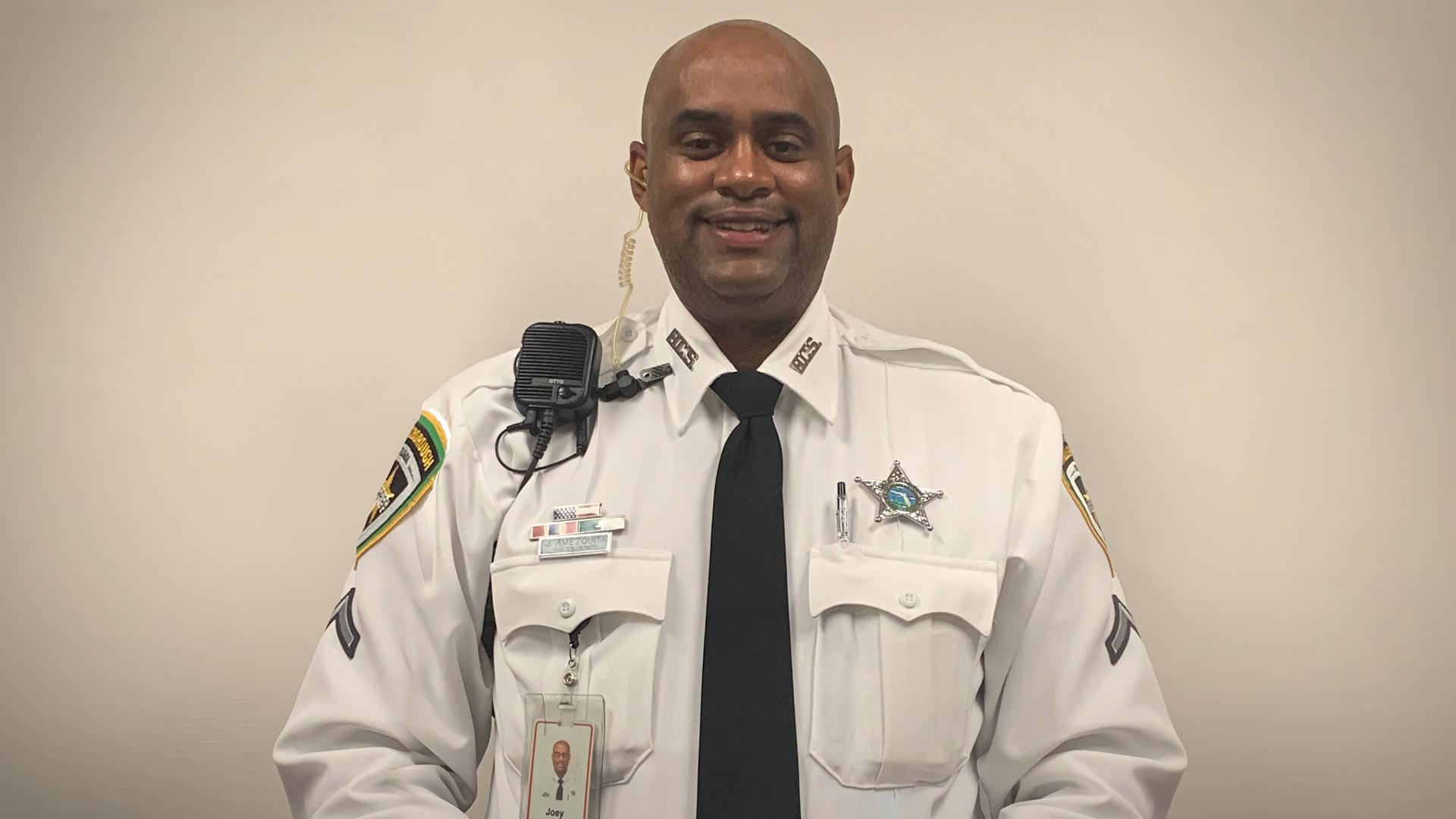
Por Joey Amezquita
Nací en Villa Palmeras (Shanghai), Santurce un barrio de Puerto Rico, soy el segundo de cuatro hijos. Como muchos proyectos de vivienda, está plagado de problemas sociales asociados con la pobreza crónica y multigeneracional.
Liberarse de la Pobreza
Mi padre, queriendo una vida mejor para su familia, se alistó en el ejército de los EE. UU. (Desde 1899 los puertorriqueños, como ciudadanos americanos, han participado en todos los compromisos militares importantes de los Estados Unidos). Esto nos permitió un estilo de vida mucho más seguro y de clase media que el que hubiéramos tenido si nos hubiéramos quedado en Villa Palmeras, pero nos mudamos mucho. Las primeras órdenes de mi padre fueron ir a Maryland. Desde allí nos trasladaríamos a Fort Lewis, en el estado de Washington; luego a Long Island, Nueva York; después a Fort Dix, Nueva Jersey; y después a la base de Strassburg Kaserne en Idar-Oberstein, una ciudad del suroeste de Alemania.
Yo amaba Alemania. En diciembre de 1984 nos mudamos allí, y aunque solo tenía nueve años recuerdo lo increíblemente hermoso que era. En lugar de vivir en el cuartel, vivíamos en una hermosa casa de cuatro pisos. Jugábamos afuera en la nieve y corríamos por los pasadizos secretos de la casa que los antiguos ocupantes habían utilizado para esconder a los judíos
Después de doce años de servicio a su país, mi padre decidió dejar el ejército en 1987 y trasladar a nuestra familia a Florida. Dejar Alemania fue difícil. Tenía once años y tuve que dejar atrás un fuerte grupo de amigos.
Jugábamos afuera en la nieve y corríamos por los pasadizos secretos de la casa que los antiguos ocupantes habían utilizado para esconder a los judíos.
¡Empecé a trabajar en las fuerzas del orden a la avanzada edad de 19 años! Aunque de pequeño era algo así como el «payaso de la clase» y el cabecilla de las travesuras entre mis hermanos y amigos, mi sueño siempre había sido convertirme en agente de policía para ayudar a la comunidad. Por aquel entonces, mi padre trabajaba en el departamento de libertad condicional y él y Christina, mi novia de secundaria, me animaron a alcanzar mi sueño.
El 15 de agosto de 1995 trabajé como oficial correccional en la Institución Correccional de Polk, una prisión estatal para hombres ubicada en Polk City, Florida. Los presos asignados a esta institución eran hombres y habían sido sentenciados por un período que iba desde un año y un día hasta toda la vida. A los reclusos del campo de trabajo donde yo trabajaba les quedaban menos de cinco años de sentencia antes de que se les permitiera irse a casa.
Como residía en Brandon, Florida, a una hora de distancia de la Institución Correccional Polk, decidí transferirme a la Cárcel Orient Road con la Oficina del Sheriff del Condado de Hillsborough en Tampa, y el 3 de noviembre de 1997, comencé mi nueva asignación trabajando en el turno de noche en la Cárcel Orient Road. En enero de 2000, me trasladé a la cárcel de Morgan Street y continué trabajando en el turno de noche. Morgan Street albergaba presos federales y a unos 50 reclusos de la cárcel del condado.
Liberarse del Pecado
En junio de 2001 mi vida cambió para siempre. Aunque mi padre era un padre amoroso, no tenía una relación con Jesús y no me había modelado un estilo de vida piadoso. Me habían criado sabiendo que había un Dios, pero me faltaba una relación con él. Tenía miedo de morir y de lo desconocido.
Christina me invitó a unos servicios especiales en una iglesia llamada Tabernáculo de la Fe de Tampa (Tabernacle of the Faith). Dos semanas antes, su compañera de trabajo, Kathy, había invitado a Christina a la iglesia y, sin que yo lo supiera, Christina le había entregado su vida a Jesucristo. Ahora ella tenía vida eterna.
Acepté asistir al servicio y me encontré entrando al Tabernáculo de la Fe. Cuando me senté en el banco y escuché al pastor Tejara predicar, sentí como si me estuviera mirando directamente. Cuando el pastor Tejara dijo que yo era un pecador y estaba destinado al infierno, que si moría ese día, me separaría de Dios para siempre y pasaría el resto de la eternidad atormentado en el infierno, me asusté mucho. No quería ir al infierno para siempre.
En ese momento, el pastor Tejara pidió a cualquier persona del público que quisiera entregar su corazón y su vida a Jesús que levantara la mano. Yo estaba nervioso, pero también sentí que una paz que nunca antes había experimentado me invadía. Levanté mi mano, me arrepentí de mis pecados y acepté a Jesucristo en mi corazón como Señor y Salvador. Christina y yo fuimos las primeras personas de nuestra familia en entregar nuestros corazones al Señor. Compré mi primera Biblia y empecé a leer la Palabra de Dios y a asistir a estudios bíblicos con Christina.
Cuando recibía una asignación, oraba en el camino, pidiéndole al Señor que enviara a Sus ángeles y que me ayudara a ser lento para hablar y lento para la ira y para darme una paz sobrenatural.
Christina y yo habíamos estado juntas desde abril de 1994, y el Espíritu Santo comenzó a tratar con nosotros acerca de casarnos. Mi buen amigo y colaborador Ed, que era cristiano, nos animó a ir al juzgado y casarnos por obediencia a la Palabra de Dios. Tomamos la decisión de no esperar más, y el 22 de febrero de 2002, Christina y yo fuimos al centro de la ciudad al juzgado de Tampa y nos casamos. Esta fue la segunda decisión más importante de mi vida.
Dios honró y bendijo nuestra obediencia al casarnos. Cuando comencé a leer la Biblia, la Palabra de Dios cobró vida y sentí tanta emoción, gozo, paz y satisfacción. En realidad, nunca antes me había gustado leer, pero ahora estaba impaciente por leer la Palabra de Dios. La amo mucho. La Biblia es la guía para la vida. Todo está en la Palabra de Dios: consejos sobre las finanzas, el matrimonio, los hijos, la depresión, el pecado, los profetas y la vida piadosa.
Cuanto más leía la Palabra de Dios, más aumentaba mi fe. Ya no tenía miedo a lo desconocido ni a la muerte. Tenía una paz y una alegría asombrosamente sobrenatural. Oraba antes de ir a trabajar. A menudo entraba en una celda con 30 reclusos que habían sido condenados por asesinato y otros crímenes violentos, y una paz me invadía. .
Una vez, uno de los reclusos, tratando de intimidarme, me preguntó: «Si la puerta se cerrara detrás de ti “accidentalmente” y estuvieras atrapado aquí con nosotros, ¿estarías asustado?” Respondí con valentía: «No, no estaría asustado porque tengo un ángel asignado y Dios me protegerá y no dejará que ningún daño me sobrevenga». Cité Isaías 54:17: «Ninguna arma forjada contra ti prosperará»(RVR-60). Le dije al recluso que no tenía que pelear con él físicamente porque Dios peleará todas mis batallas. Le hice saber que temía a Dios y no a los hombres, terminé el registro de la celda y salí de ella.
Liberarse de la Esterilidad
Comencé aplicar lo que estaba aprendiendo de la Biblia en mi vida diaria con mi matrimonio y con mi trabajo. Fue asombroso. Años atrás, los médicos le habían dicho a Christina que no podía tener hijos. Sin embargo, en 2003 mi esposa me dio una gran noticia: ¡estaba embarazada! ¡Estábamos muy contentos! Creo que el Señor nos bendijo con este milagro al permitirle tener hijos porque estábamos alineados con Dios.
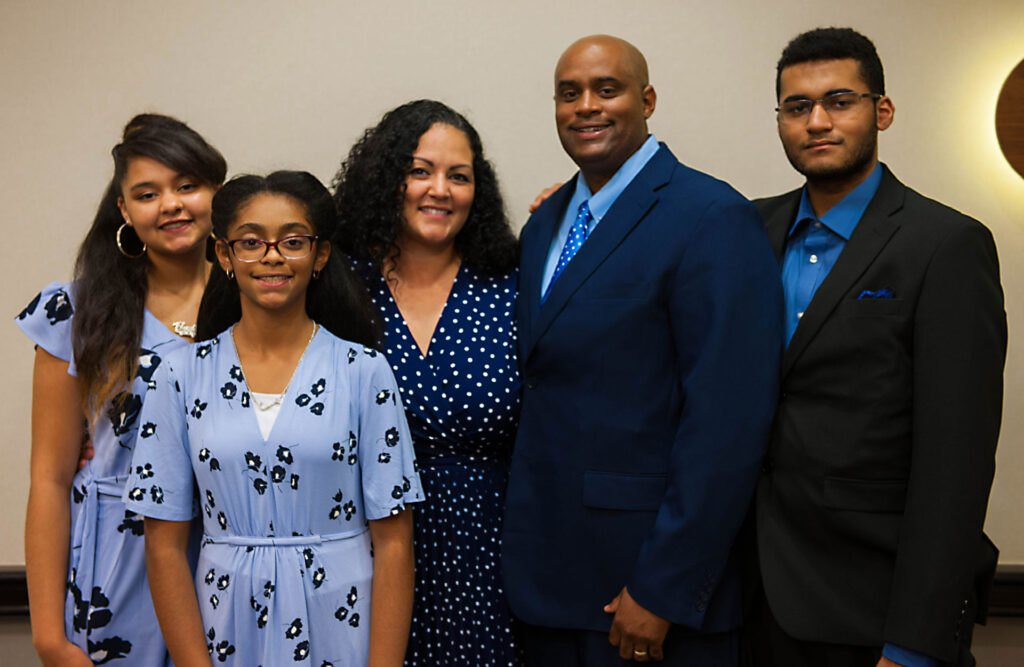
Por aquel entonces, estaba leyendo 2 Reyes 22:1 y aprendí acerca de este rey joven llamado Josías de tan solo ocho años. El rey Josías, cuyo nombre significa «el Señor te apoyará», fue uno de los pocos reyes del Antiguo Testamento que hizo lo que Dios le pidió que hiciera sin dudarlo. Amo su historia, así que quería nombrar a mi hijo Josías. Sin embargo, mi esposa quería que ese fuera su segundo nombre, no el primero. Bueno, mi mamá no crió a ningún tonto, así que llamamos a nuestro hijo Justin Josías. (¡Esposa feliz, vida feliz!). En diciembre de 2005, el Señor nos bendijo con una hermosa niña a la que llamamos Jayla. Y en febrero de 2009, el Señor nos bendijo con otra hermosa niña a la que llamamos Julia.
Mi esposa solía preocuparse por mí, pero le decía: «No te preocupes; sólo ora», y lo hizo. Ella oró por la protección de Dios sobre mí. Yo también oré. Cuando recibía una asignación, oraba en el camino, pidiéndole al Señor que enviara a Sus ángeles y que me ayudara a ser lento para hablar y lento para la ira y para darme una paz sobrenatural. Enfrentaba una situación con la autoridad de Dios y los presos podían sentir que era cristiano. Un recluso de Cuba me dijo que sabía que algún día yo iba a ser pastor. En 2003 la cárcel de Morgan Street cerró, así que comencé a trabajar en la Unidad de Vivienda de la Cárcel de Falkenburg Road 11. Soy una «persona sociable», y cuanto más leía la Biblia, más me di cuenta de lo fácil que era proclamar el Evangelio (las Buenas Nuevas) a los reclusos en las celdas, aunque tuviera que ser creativo en mi metodología.
Liberarse Hacia la Fecundidad
Las normativas no permitían que nos tomáramos de las manos y orar por los presos, pero se les permitió tener una Biblia. Hacía que algunos de ellos se acercaran a mi escritorio y abrieran sus Biblias en Juan 3:3-18, el pasaje sobre nacer de nuevo y recibir la vida eterna. Luego les pedía que fueran a Efesios 2:8-9, donde dice: «Porque por gracia sois salvos por medio de la fe; y esto no de vosotros, pues es don de Dios; no por obras, para que nadie se gloríe» y también Romanos 10:9: «que si confesares con tu boca que Jesús es el Señor, y creyeres en tu corazón que Dios le levantó de los muertos, serás salvo». Quería que experimentaran la Palabra de Dios escrita. En una oportunidad habían cinco presos alrededor de mi escritorio con sus Biblias abiertas. Luego procedí a hacer un llamado al altar allí mismo en la celda, y los cinco presos entregaron sus vidas a Cristo. ¡Alabado sea el Señor! Los animé a seguir leyendo la Palabra de Dios y a inscribirse en los servicios religiosos no denominacionales.
Mi familia también llegó a la fe en Cristo. En 2002, Christina y yo tuvimos la bendición de guiar a su hermana menor Zenia al Señor, quien la transformó de una joven tímida a una mujer joven que usa sin vergüenza sus increíbles talentos para dirigir la adoración. En 2005 tuve el privilegio de presenciar a mi padre entregar su vida a Cristo en una cruzada de Promise Keepers (Cumplidores de Promesas). Mi madre dudaba un poco más, no estaba segura de que la conversión de mi padre fuera sincera. Pero en 2007, mientras luchaba contra un el cáncer de mama fase cuatro, también aceptó a Cristo como su Salvador. De hecho, experimentó sueños y visiones de Dios. Tuvo un sueño sobre el huracán María antes de que devastara el noreste del Caribe en 2017. Le pidió al Señor que evitara que sucediera, pero Él le dijo que tenía que suceder porque su pueblo se había alejado de Él. Mi madre también guió a otros miembros de la familia al Señor.
Podemos proclamar el evangelio a muchos acusados y hemos llevado a varios de ellos a arrepentirse de sus pecados y aceptar a Cristo en sus corazones.
Hoy soy uno de los dos alguaciles que trabajan en el juzgado en la división de delitos menores. Mi compañera, la diputada Wright, también es una gran cristiana, una mujer de fe. Todas las mañanas, antes de comenzar el tribunal matutino, clamamos a la sangre de Dios por protección sobre el tribunal y el personal. Nos aseguramos de establecer una atmósfera piadosa en la sala del tribunal. Podemos proclamar el evangelio a muchos acusados y hemos llevado a varios de ellos a arrepentirse de sus pecados y aceptar a Cristo en sus corazones. Estoy agradecido a Dios porque usó mis 26 años de trabajo en las fuerzas del orden/correccionales para compartir el Evangelio.
En septiembre de 2019, la hermana de Christina, Zenia, y su esposo, Carlos, comenzaron a asistir a un estudio bíblico dirigido por Calbert y Beverly Mark, pastores de Open Bible Prayer Chapel en Wesley Chapel. El estudio fortaleció tan poderosamente la fe de Zenia y la de su esposo que nos dijeron a mi esposa y a mí que teníamos que ir a verlo. Los Marks llevaron nuestra fe a otro nivel. Pronto toda nuestra familia, incluida mi suegra, Carmen, y la otra hermana de Christina, Yaritza, asistieron al estudio. ¡La amiga de Christina, Kathy, también comenzó a asistir! Ahora Christina y yo estamos planeando hacer otro cambio en nuestras vidas, mientras trabajo para convertirme en un ministro licenciado con la Biblia Abierta. Calbert y Beverly Mark son nativos de Trinidad. Enviados como misioneros desde Trinidad hace más de 27 años, los Mark establecieron doce obras pioneras en Venezuela y fueron instrumentales para plantar iglesias en Trinidad y Colombia. Calbert todavía sirve como director de campo de las Iglesias de la Biblia Abierta en Venezuela. Me sorprendió que Dios enviara a Wesley Chapel, Florida, a una pareja trinitense que servía como misionera en Venezuela para bendecir a nuestra familia, ¡pero Él lo hizo!
Sobre el Autor
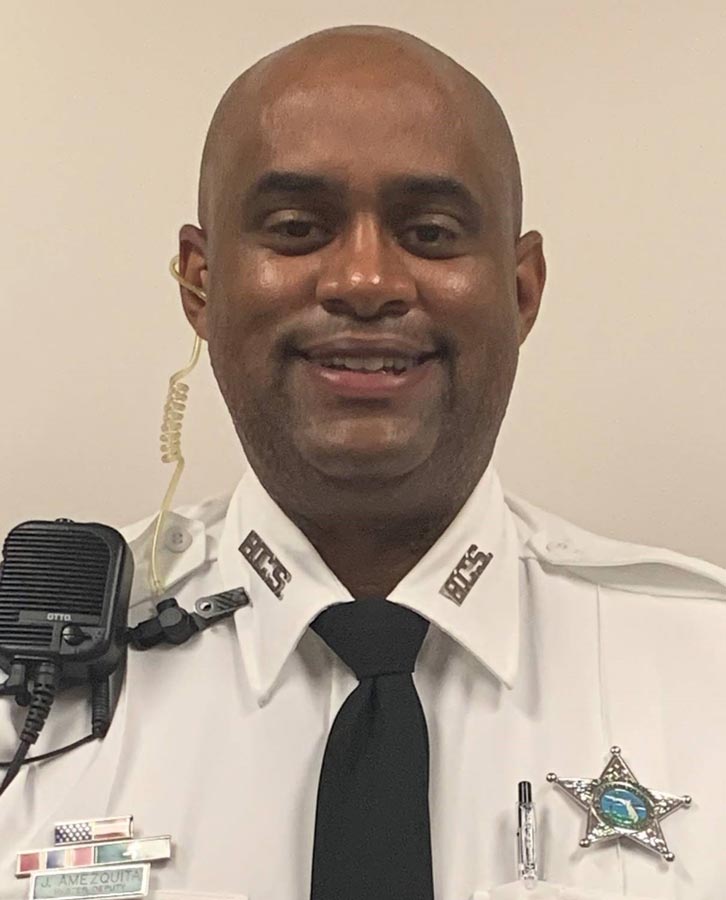
Joey Amezquita, después de haber trabajado en la aplicación de la ley durante 26 años, es alguacil de la Oficina del Sheriff del Condado de Hillsborough en Tampa, Florida. Él es un miembro comprometido y maestro de escuela dominical en la Open Bible Prayer Chapel en Wesley Chapel, Florida, que pastorea Calbert Mark. Joey y su esposa, Christina, tienen tres hijos.
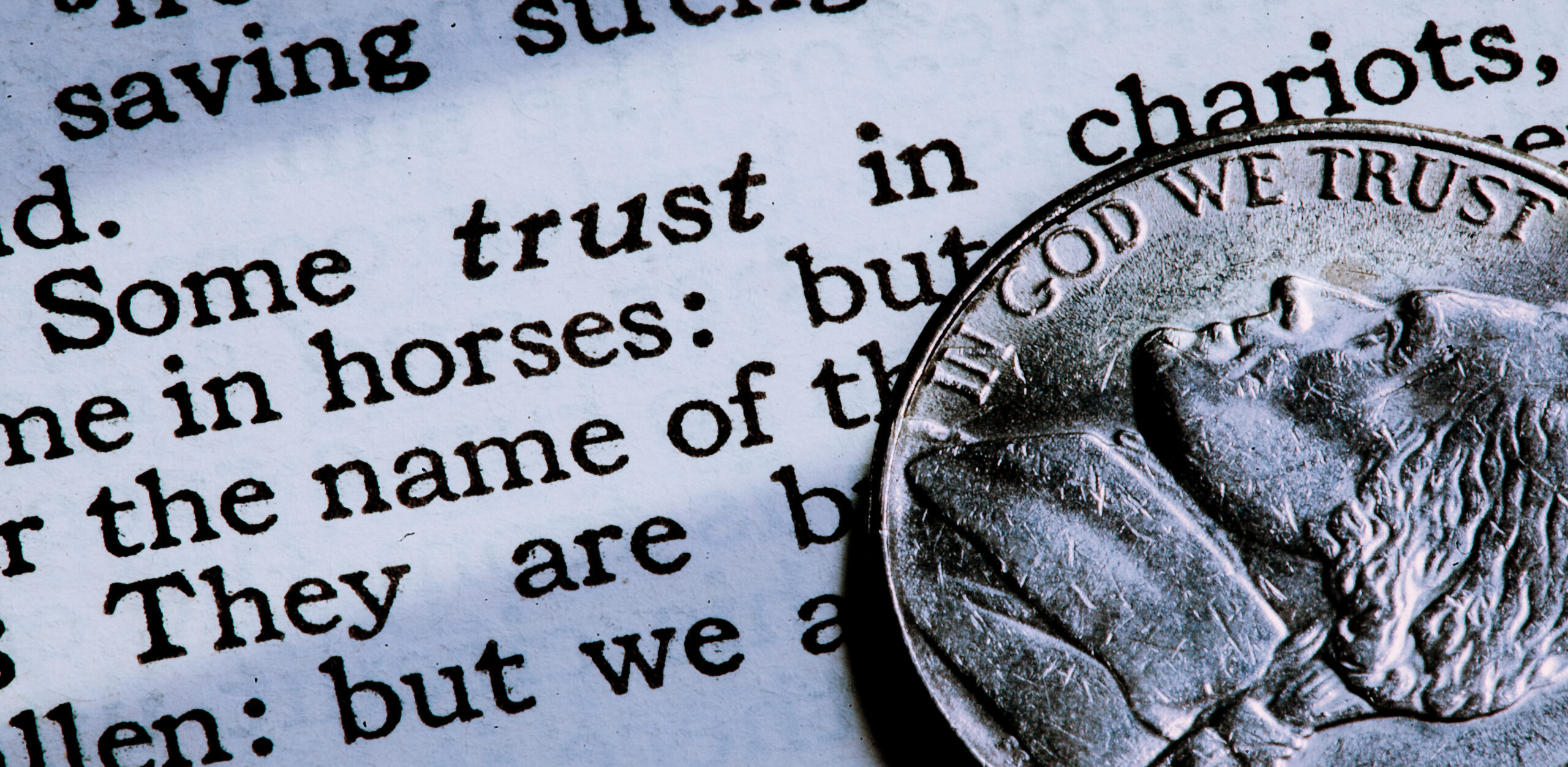
By Bill Francavilla
We all have days when we question what has gone wrong in society. The cause can be an event we see on the news or on social media. But very few of us see it firsthand.
I will never forget the morning of April 17, 2016. Early Sunday morning before the rest of my family woke up, I headed to the grocery store to buy a few things for breakfast. I was completely unaware that another person was headed to the same grocery store with a very different purpose.
I would like to say that I played the part of a hero, but when I heard shots fired and one of the cashiers screaming for everyone to get out, my response was to run as fast as I possibly could. I made it safely out the front door along with two employees and collapsed in the front of the church next door where I called 911.
The local police and paramedics did a top-notch job and soon apprehended the shooter. It was determined he had acted alone. Unfortunately, a man my age who had gone to the same grocery store with a similar purpose as mine was now dead. He left behind a wife, a young daughter, and an unborn baby.
In the news reports later that day many people who did not witness the incident were quoted as saying, “This sort of thing never happens here!”
Nonetheless our town had to face the fact that we had just had a fatal shooting.
In the five years since, I have asked myself how such a violent occurrence could have happened in such an innocent setting. More important, I wanted to know how to keep something like this from ever happening again.
It is no secret that we have seen a decline in the morality of our culture since the mid-twentieth century, and as a result we have seen an increase in crime, poverty, sexual perversions, and apathy.
Perhaps more alarming and not by coincidence, we are living in an age where our culture is more and more strongly opposed to the things of our God.
We have seen the Ten Commandments removed from court buildings, pushes to remove “under God” from the Pledge of Allegiance, and a devaluing of an elected official swearing his or her oath of office on the Bible.
When prayer was taken out of public school in 1962, suddenly millions of young Americans were no longer praying with childlike faith for their country. As Christians it is easy to ask ourselves, “What did we expect?”
Of course, sin was going to creep in and hit small-town America; it was just a matter of when. We are far from the first culture with Christian roots to face the secularization of society, and we will certainly not be the last. The question that faces us is this: What are we, the people of God, to do about it?
Every four years many Christians vote as if their lives count on it. Without ever engaging with their neighbor, they pull the lever on the voting booth and walk out as if they have accomplished something noble.
While it is of the utmost importance to vote, that act can only go so far. Sure, from time to time we happen to get an elected official that we think is going to “set things right.” But do we really expect reform to come by an act of legislation?
There is still a culture out there to whom we are commissioned to minister.
When King Josiah came to the throne, he was put in perhaps one of the most awkward positions in the history of Israel. At the age of eight, Josiah was tasked with reigning over a people who were openly rebellious to their God.
His father, King Amon, reigned for only two years and had proven to be weak and ineffective. His grandfather was the infamous King Manasseh, a king so evil he sacrificed his own sons to false gods. After 45 years, though, Manasseh had been humbled by God and lived out the remaining ten years of his reign serving God.
While Manasseh tried to reform his kingdom in the latter part of his reign, the culture had already taken a dangerous turn towards idolatry and false worship. There was little he could do to change the hearts of the people.
Now the boy-king Josiah was tasked by none other than his distant cousin, the prophet Zephaniah, with reforming his new kingdom. Nonetheless, Zephaniah did not tell Josiah that change would come from his government; it would come through an act of repentance and prayer.
Seek the Lord, all you humble of the land, you who do what he commands. Seek righteousness, seek humility; perhaps you will be sheltered on the day of the Lord’s anger.
Zephaniah 2:3
In 2 Chronicles 34 we are told that by the time Josiah was 16, he began seeking after the Lord, and by the time he was 20, he purged Jerusalem and Judah of all its idols and false gods. But nothing could prepare him for what he would see at the age of 26. As his reforms continued, Josiah made the decision to repair the temple of the Lord where the “Book of the Law of the Lord” was discovered, and for the first time in a long time, the people heard the law and repented.
I believe that the words of Zephaniah can apply to us today. Since we are Americans and do not have a king, the people must seek the Lord, seek righteousness, and seek humility. Unless the people of this nation seek the Lord and pray for a true revival, electing a righteous man or woman to the presidency can only be so helpful.
Believe it or not, this is not the United States’ first moral slump. Just after the revolution, our new country had unbelievably high rates of drunkenness, crime, and profanity. Churches were losing more members than they were gaining.
The late Baptist minister and historian J. Edward Orr wrote about this in his article “Prayer and Revival.” He quotes Chief Justice of the United States, John Marshall, who wrote to the Bishop of Virginia, James Madison, that the Church “was too far gone ever to be redeemed.”1
How did the situation change? It was through a concerted effort of prayer. It happened when the people of God decided to ask our Lord for His wonderful favor upon our nation. Every revival in history has the same story.
It was true in Josiah’s day just as it is true in ours.
When small-town America no longer feels safe, people tend to ask themselves how we got to this place and what must we do to turn the tide? The answer is always going to be prayer.
If you consider your church a house of prayer, then you should be praying for the coming revival we so desperately need, a movement that will be felt for generations.
Josiah’s revival did not last long, but thankfully we still have the words of Zephaniah to guide us back to our spiritual heritage as the people of God.
1 Orr. J. Edwin. “Prayer and Revival.” https://jedwinorr.com/resources/articles/prayandrevival.pdf
About the Author
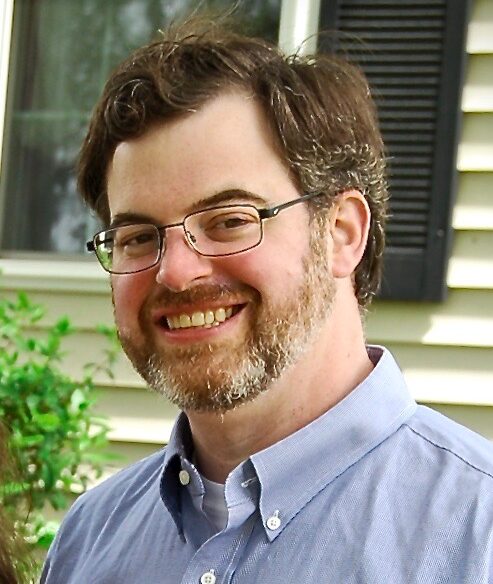
Bill Francavilla and his wife, Jessica, pastor Living Hope Church in Williamsburg, Virginia. Bill has served in many different ministries from teaching middle school Bible classes to serving as a chaplain at a retirement community. He holds a master’s degree in theological studies from Liberty University and has been active in missions to Mexico, Dominican Republic, and Cuba. Bill and Jessica have four children: Alex, Liam, Rita Grace, and Gino.
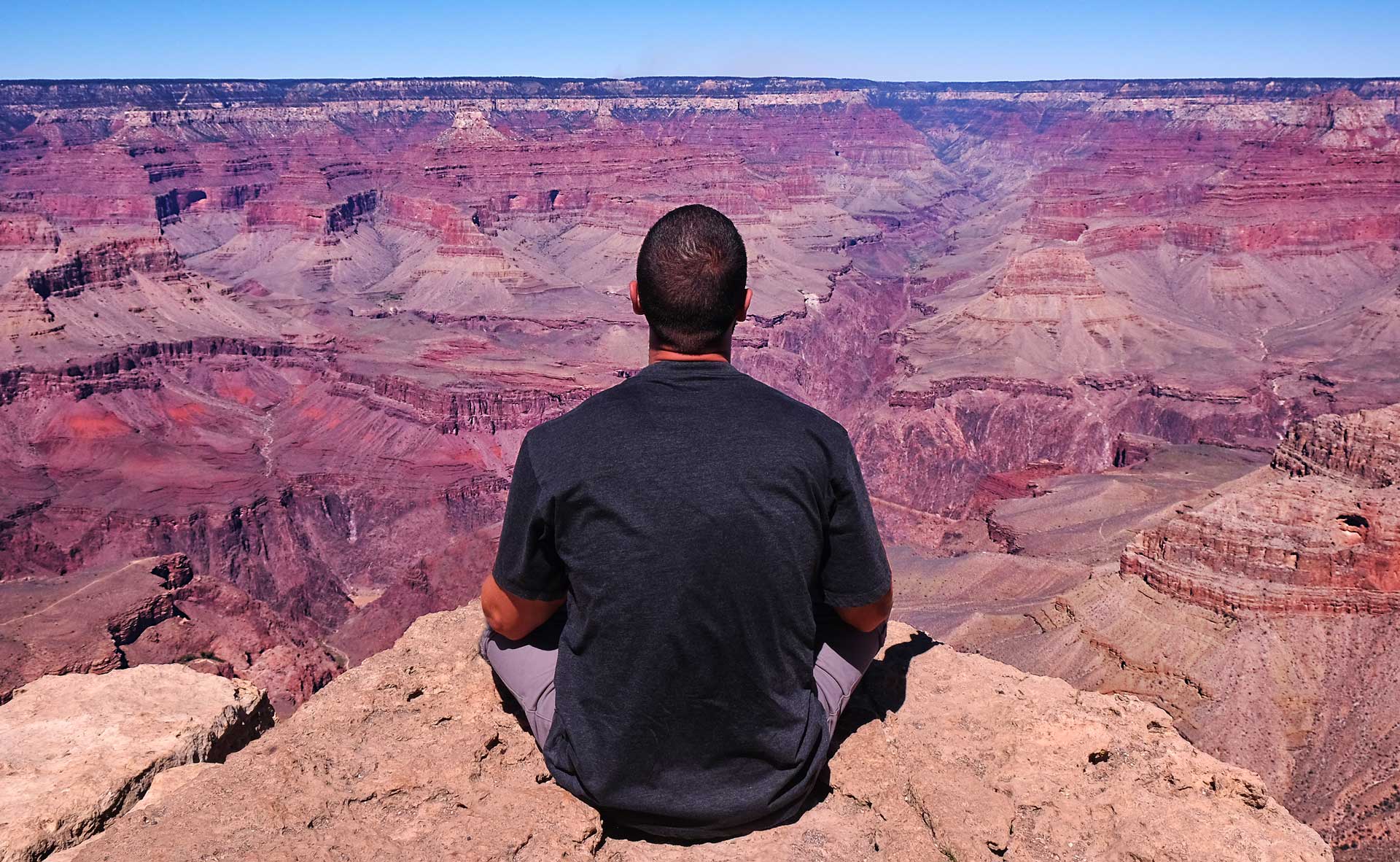
By Marvin Lumbard
During our devotions together the other day, I told my wife, Diana, that I’ve been struggling in prayer recently. Later that same day I opened an email from Andrea, the Message editor, asking me to consider writing an article on prayer. As I read it, my initial response was “No.” Who was I? What was I? And of all times now…when my Father’s ear seemed distant. When reading Psalms recently, I had been nodding my head in agreement as David asked God why He wasn’t answering or why He wasn’t doing the “God things” when they seemed so necessary “right now.”
Yet now as I write, the sun isn’t up yet, not because early mornings are some part of my spiritual pattern but because this morning I can’t sleep. God is speaking. Before I even took the time to formally pray about Andrea’s request, He spoke. My friend and former boss, Spencer Keroff, pastor of First Church of the Open Bible in Des Moines, Iowa, says, “Prayer is a two-way conversation with God.” I guess this is me experiencing that conversation.
Knowing His Voice – Hearing
I wouldn’t say that I receive many “words” from the Lord. Oh sure, I know His anointing when I preach or teach, but aside from the written Word of God that I have hidden in my heart, I don’t recall very many phrases that He has spoken to me. Most of His leadings, which I expect daily, are more like nudges.
One phrase from the Lord that I do remember came many years ago when I was in my quiet place. He said, “Music is not your ministry; prayer is.”
Since music had been a prominent part of my life, this word was timely. It wasn’t a corrective word, but a directive word. I knew it was Him. It bore all the characteristic features of something He would say: it was in the stillness, it was gentle, it carried with it the peace that I have come to expect with any of His leadings, it fell into a thematic pattern of what I knew He had already said in Scripture, and . . . it wasn’t something I would tell myself. His directive didn’t change much on the outside; you probably wouldn’t have seen any difference at all in my life, but it was “the voice behind [me] saying, ‘This is the way; walk in it’” (Isaiah 30:21).
I cherish the story about Elijah in 1 Kings 19. Elijah was at what may have been the lowest point of his life, hiding in a cave in the wilderness afraid for his life. It was at this point that God spoke to him. I think the narrative is for us mostly (Elijah already knew the voice of God).
In essence God said to Elijah, “We need to talk. Meet me on the mountain.” As God passed by the cave where Elijah waited, rock-breaking winds tore at the mountain, then an earthquake shook the ground under Elijah’s feet, and then there was fire. (Wouldn’t we love to experience any of these as vehicles of God’s voice!) Only after the fire did Elijah hear the voice that He recognized – the quiet one, the one that required Elijah’s heart to be still enough to hear. Such a familiarity comes only with time spent in His presence.
Obeying His Voice – Doing
One of the keys in Elijah’s narrative that I missed for a long time was the part Elijah played in his meeting with God. God told Elijah where the meeting would take place, but Elijah still had to go there. Even though he was waiting in a cave on the mountain, Elijah still had to get up and go meet God when he heard God’s voice.
As much as God has done to clear the path for us to be near Him, He stops a distance away and says, “Draw near, seek, knock, ask.” Part of the maturity of knowing God is certainly the recognition of His voice, but of equal importance is saying “yes” when we hear it. Perhaps the greater struggle is not in hearing His voice but in being willing to do what we hear Him say. More often than not, the call to come is heard when there is plenty to do and we’re buried in the midst of it all.
I’m reminded of the time when I was an eleven-year-old lying under a ’66 Dodge Polara with my grandad, doing my part to swap out a 318 under a big, old tree. Suddenly Grandad stopped working, so I looked at him to see what was going on. There he was, hands raised in that narrow space between the earth and the underside of the car, giving glory to our God who had given us the strength, the provision, and the understanding to fix one of life’s necessities. Grandad had heard the voice call to him, and he responded instantly. Long before I met his God, I learned a timeless lesson.
Drawing Near is the Solution to the Dryness
I mentioned earlier a recent season where God’s voice seemed faint. I find that unless I am harboring sin, the faintness or distance is just His calling me to a deeper place.
The busier we become, the easier it is for our secret place to lose its significance. Loud and desperate voices clamor for our attention. Jesus too was called on to meet the needs of many well-meaning, loved, and godly people. I think of Lazarus’s family (John 11) and the godly Greeks with whom Jesus refused an audience in His final week (John 12:20-26). In these times of busyness the still, small voice will lead us to pray when we should pray and to pray with whom we should pray. Without this leading we find ourselves submitting to the pressures of others’ priorities. (My dad always says, “Everybody has a plan for your life.”) As we listen and obey, God leads us into deeper places of dedication, deeper places of victory, and deeper places of responsibility (Matthew 25:14-30).
Jesus was misunderstood much of the time because His teachings were from a source that was higher than that of His listeners’ understanding. His leading was also from a higher source. Not until after Lazarus’s resurrection did his family get over the offense they felt by Jesus’ tardiness. Perhaps the Greeks never did understand why he couldn’t give them a few minutes. One thing is for sure, His timing was always spot on; so was His prayer time. Walking in the peace of the Father, near to His voice, Jesus was confident that the day would be directed by the Spirit. With His mind fixed on the Father, Jesus walked in the peace of God all the time (Isaiah 26:3). We can too.
About the Author
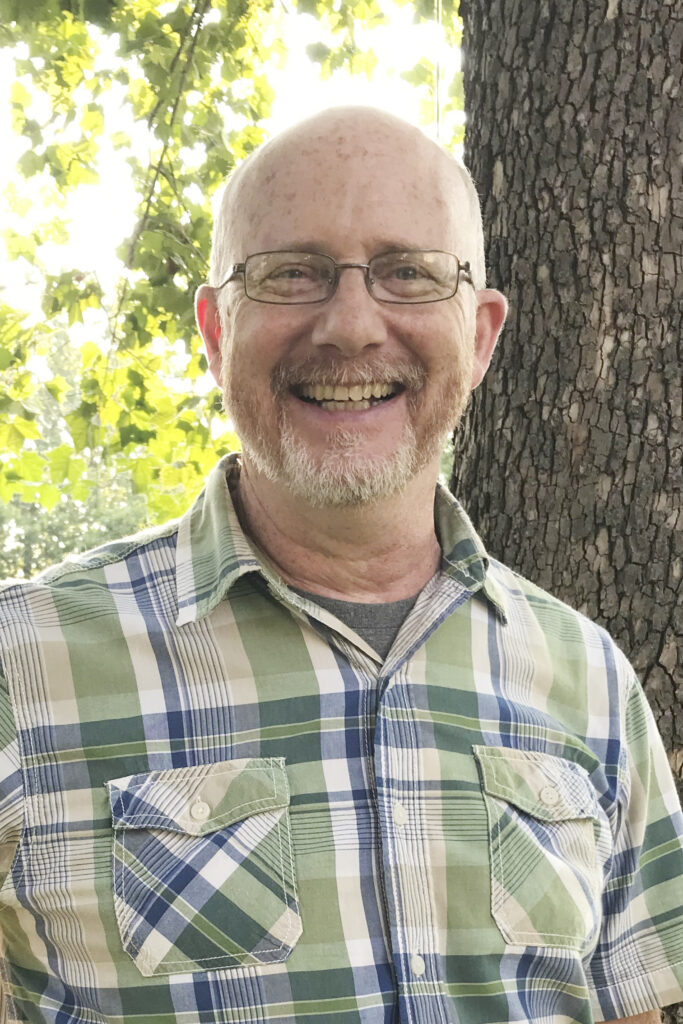
Marvin Lumbard is the husband of Diana Lumbard. “To everyone’s amazement” (according to Marvin), she has been married to him for 43 years. After spending 22 years in the aircraft industry, Marvin’s focus became ministry. He served as the worship director/worship pastor at First Church of the Open Bible in Des Moines, Iowa, for 11 years. Ordained with Open Bible Churches, Marvin has served as pastor of Community Chapel, an Open Bible church in Des Moines, since January of 2018.


